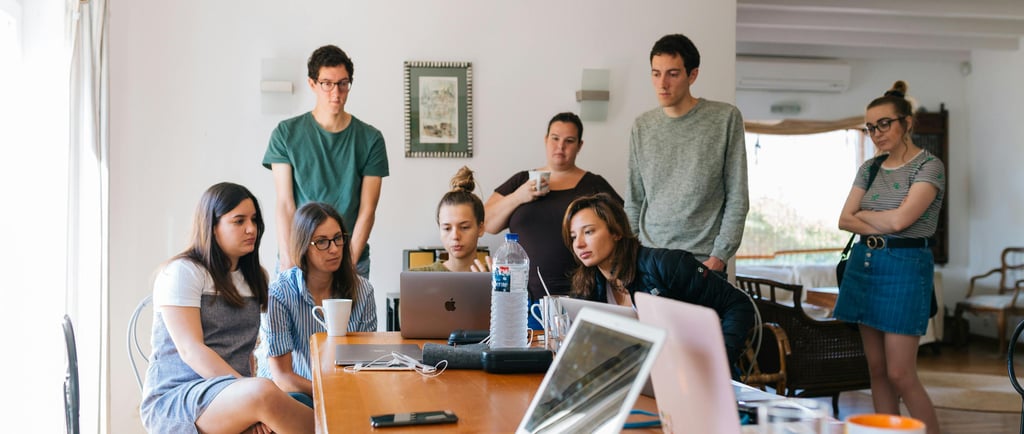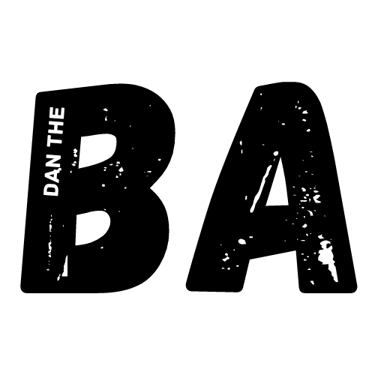The Top 10 Tips for Running a Successful Workshop
How many workshops have you been to which were unproductive or had a veneer of success but actually achieved nothing? In spite of the number of times people throw around the word “workshop”, very few of these “workshops” are actually productive. Usually this falls on the facilitator of the workshop, and as a BA, there’s a good chance you will be expected to facilitate a workshop; so follow these tips and have yourself a successful, productive workshop that your attendees remember and your project actually benefits from.
LIST ARTICLES
6 min read


The Top 10 Tips for Running a Successful Workshop
How many workshops have you been to which were unproductive or had a veneer of success but actually achieved nothing? In spite of the number of times people throw around the word “workshop”, very few of these “workshops” are actually productive. Usually this falls on the facilitator of the workshop, and as a BA, there’s a good chance you will be expected to facilitate a workshop; so follow these tips and have yourself a successful, productive workshop that your attendees remember and your project actually benefits from:
1. Failing to Prepare is Preparing to Fail
There are many things to consider here and there is a little overlap with the next two points but those are important enough to be called out individually. Here we’re going to look at the general points of preparation:
1. Think about what you need to achieve (more on this in tip 2).
2. Plan out which activities you’re going to do and estimate how long they will take, remember to have a contingency activity that you can sacrifice if you’re over-running.
3. Create an agenda and share it. Assuming you have sent the invite via a digital medium (Outlook etc) then you will be able to update the event. Be sure to have the agenda added to the event with a good 2 days’ notice. This doubles up as a handy place to find your agenda during the workshop if you haven’t got it presented onscreen.
4. Prepare your materials in advance, whether it’s a digital whiteboard or collecting your physical materials (pens, paper, etc), double check you have everything you need at least an hour before the workshop.
5. Do not underestimate the power of the pre-read. If you are planning to introduce a new technique to your attendees, providing them with a primer that explains what the exercise is all about can greatly contribute to the success and productivity of the technique.
6. If you are using techniques that have an end output (Fundamental Question, User Journey, etc) then creating a strawman can often lead to a more productive session. This is because a blank template is harder for people to fill in and often leads to conversations that go in circles and never reach a consensus; a strawman will gives something for the attendees to criticise and edit, this usually jumpstarts the creative process leading to a more thorough output.
2. Set Goals for the Workshop
It is genuinely worrying how many workshops I have been to where there was no clear goal. The host may have an idea of what they want to achieve but if it hasn’t been shared as a part of the agenda and displayed to the group at the start of the workshop, then it is as good as non-existent.
By making the goal of the workshop clear you achieve several things:
1. A implied ‘deadline’ is set by the goal. We need to achieve X within the next Y minutes.
2. Everyone knows what they are working towards. Without a goal it is possible that some attendees may think the workshop is simply a discussion without tangible outputs.
3. Having clear goals for your workshop holds you accountable as the facilitator. Without goals, there is less incentive to keep the workshop on track, leading to the risk of achieving nothing as attendees deviate from the main objectives. As a facilitator, having clear goals provides a strong reason to bring the discussion back to the intended path.
3. Know Your Audience
When planning out your workshop, keep in mind who your attendees are. How knowledgeable are they on the topic of the workshop? How close are the attendees as a group? Have the attendees ever been in similar workshops/done similar techniques before?
By answering these questions you will be able to prepare an appropriate workshop and also facilitate it accordingly. For example, if you have a group of attendees who have never been in a workshop together before then plan in an introduction section, if they’re all familiar with each other then you won’t need to spend time on introductions.
4. Make it Fun
There is a link between happiness and divergent thinking, which is the ability to generate a variety of creative ideas. With this in mind, keeping your workshop enjoyable will boost the creativity of your attendees which in turn provides better outputs for exercises you are completing in the workshop.
Part of making your workshop fun will involve the previous point ‘Know your audience’. By knowing who your attendees are you can keep the ‘fun’ appropriate.
5. Be adaptable… to an extent
I’ve mentioned the importance of the agenda but keep in mind that it isn’t the be all and end all. If you are having a particularly productive section of your workshop that is clearly overrunning, you may need to adjust your agenda on the fly. I have mentioned having contingency time and even sacrificial activities but sometimes you just have to make a wholesale adjustment to your agenda and book a follow up workshop to cover any missed activities.
6. Lay the Groundwork Before the Workshop
A lot of time is often wasted during workshops due to misalignment across the attendees. People often don’t like to speak up in front of a group if they don’t fully understand a topic or exercise. By having a pre-workshop briefing with your attendees you give them an opportunity to ask these questions in private.
Putting aside some time to have a quick briefing call with your attendees will allow confusion to be cleared up in advance and will
7. Rehearse if you’re nervous
It’s completely understandable to be nervous about facilitating a workshop, especially when you’ve not done many before. The good news is that practice will help reduce those nerves over time but ultimately it’s entirely natural to feel some anxiety. In it’s most base form, anxiety is simply a dread that something will happen that you really don’t want to happen; and a workshop full of people where you have a goal you want to achieve and a room full of people has a whole world of potential for things to go wrong.
Whilst you won’t be able to completely remove that uncertainty that makes you nervous, having a run-through of the workshop with someone you trust can really help to alleviate some of that anxiety. You can practice your wording, you can also practice how you will introduce and explain exercises and can get genuine feedback from that trusted person. So don’t be afraid to ask for a little rehearsal time.
8. Be prepared to take a risk
As a BA you will likely have several techniques in your bag of tricks but every now and then you will face a situation where you don’t have a tool to achieve the outcome you need. There is a strong temptation to try and make something you are comfortable with just work but this rarely ends in success. Instead, have a think about what you could try to achieve your goal, even if it means you are inventing a new way of working. Keep in mind, all the techniques you have been taught were once untested at some stage. Always allow room for innovation in your toolkit.
9. Get feedback
How do you know what works and what needs improving? Honest feedback, that’s how. Remember to collect feedback from your workshop attendees after a workshop. Depending on how often you are facilitating workshops and on who your attendees are, you may need to be sparing with the feedback requests but do try to do them after key workshops *think long, complex or where you’ve been trying out new techniques).
10. Remember, It’s Just a Job
Pretty much as it says on the tin. Yes, a workshop tends to be one of the most expensive meetings going and yes, people expect successful outputs from a long session and yes, it can be very hard to get the same group of people together if goals haven’t been achieved but… it is just a job. There are more important things in life, loved ones, taking in the moment because each moment is a unique gift you don’t get to relive. Work is important I won’t deny it but try to keep your priorities of life in mind. If anything goes wrong, have a cup of tea, dust yourself off and see what you can learn from it.
